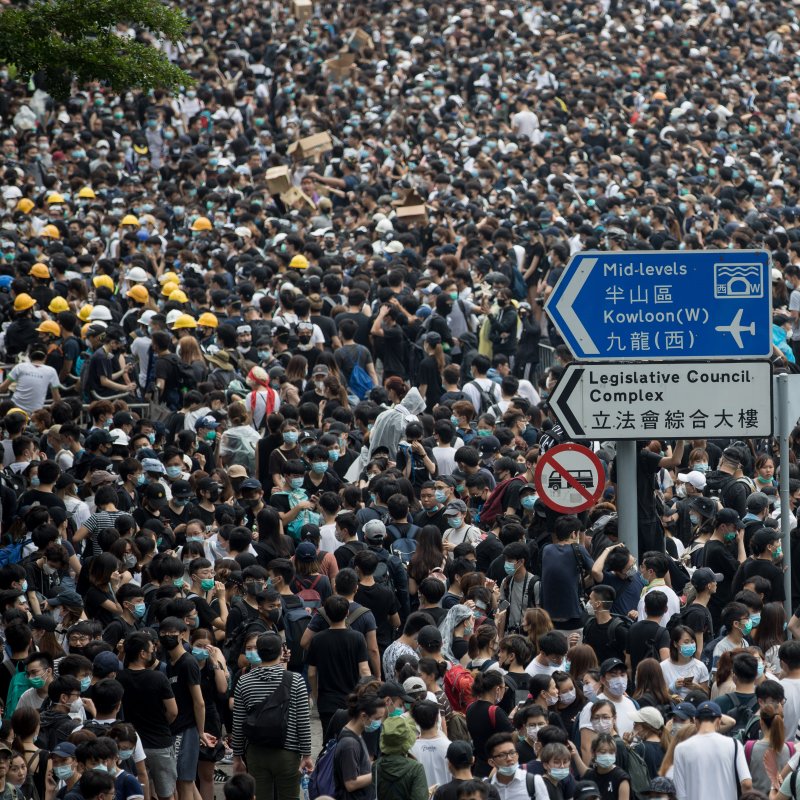Protesters rally Wednesday against an extradition bill outside the Legislative Council in Hong Kong. Photo by Jerome Favre/EPA-EFE
June 14 (UPI) -- Several U.S. lawmakers have reintroduced a bill to support more than a million protesters in Hong Kong opposed to a proposed law that would allow China to extradite people from the semi-autonomous territory.
The U.S. bill co-sponsored by House and Senate lawmakers Thursday says it "reaffirms" American commitment to democracy, human rights, and rule of law at a time when "these freedoms and Hong Kong's autonomy are being eroded."
Hong Kong was handed over from British to Chinese sovereignty in 1997 under the "one country, two systems" plan, which means residents on the island enjoy political and social freedoms. An estimated 1 million people protested this week against the extradition bill, in demonstrations that led to clashes with police. More than 70 people were reported injured.
Hong Kong lawmakers twice postponed debate of the bill, due to the mass demonstrations. It's not clear when that consideration will occur.
The bipartisan U.S. bill would also strip Hong Kong of its special trade status if it pushes the proposal.
"Democracy and freedom are under assault in Hong Kong," Rep. Jim McGovern, D-Mass., said. "If Beijing intends to force Hong Kong into becoming just another mainland Chinese city under authoritarian rule, we must re-evaluate whether Hong Kong warrants the special status granted under U.S. law."
McGovern, Florida Sen. Marco Rubio and New Jersey Rep. Chris Smith introduced the bill.
"The U.S. must send a strong message that we stand with those peacefully advocating for freedom and the rule of law and against Beijing's growing interference in Hong Kong affairs," Rubio said, accusing China of using Hong Kong's open economy to launder money, evade tariffs, circumvent sanctions and steal intellectual property.
President Donald Trump said Beijing and Hong Kong should "be able to work it out."
U.S. lawmakers introduced a related bill Wednesday that examines China's use of Hong Kong for a base of espionage against foreigners.















